opens in a new window opens in a new window
opens in a new window opens in a new window
opens in a new window opens in a new window
opens in a new window opens in a new window
opens in a new window
opens in a new window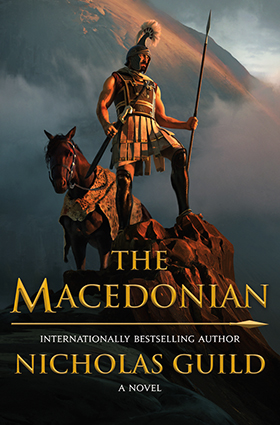 On a cold, snow-swept night in the ancient Greek kingdom of Macedon, a son is born to the king’s principal wife. His mother hates him for being his father’s child. His father hardly notices him. With two elder brothers, obscurity seems his destiny. The boy is sent off to be nursed by the chief steward’s wife.
On a cold, snow-swept night in the ancient Greek kingdom of Macedon, a son is born to the king’s principal wife. His mother hates him for being his father’s child. His father hardly notices him. With two elder brothers, obscurity seems his destiny. The boy is sent off to be nursed by the chief steward’s wife.
Yet, in a moment of national crisis, when Macedon is on the verge of being torn apart, the prince raised by a servant finds himself proclaimed the king.
This is the story of Philip, prince and king, the forgotten boy who rose to save his country and became a legend in his own lifetime. His extensive military conquests across the Greek peninsula would pave the way for expansion under his son, Alexander the Great.
opens in a new windowThe Macedonian will be available on December 5th. Please enjoy this excerpt.
1
The first storm of winter began just after dark. It had been unseasonably warm all day, as if summer had changed its mind and decided to linger in Macedon forever, but then, when the last smoldering red light of sunset guttered out and died, the wind blowing in from the sea grew suddenly cold. Soon damp clumps of snow were falling with noiseless, erratic fury into the dirt streets of Pella. People stood in their doorways and watched in awe. Yet no one spoke of omens. The gods were capricious this far north, and such things had been known to happen before.
Within an hour the courtyard of King Amyntas’s palace was buried to a depth of nearly three fingers. By midnight the world was hushed and white and still. The busy life of men seemed to have perished with the sun.
Yet this was an illusion, for the palace itself was far from quiet. In the women’s quarters Eurydike, the king’s principal wife, choked on her screams as she labored to give life to a fourth child, and in the great hall the king and his companions drank unmixed wine and shook the air with their ferocious mirth.
Perhaps a hundred of the land’s great nobles, the outlines of their hard faces sharpened by the dancing torchlight, laughed and shouted and beat their hands against the trestle tables that appeared arranged in no particular pattern and yet reflected a strict order of precedence. In battle these men surrounded the king’s person, guarding his life with their own, and indeed their revels seemed a kind of battle, the sound of which hammered at the very walls.
A man appeared among the banqueters—not a grand figure like the others, yet not a servant. He looked about him as one might viewing the scene of some catastrophe. His tunic and even his short white beard were flecked with blood. He was Nikomachos, the king’s physician and close friend.
As he approached Amyntas’s couch and leaned down to speak to him, the hall fell into an uneasy silence.
“My Lord…”
The king, the flesh around his eyes seamed and cracked like an ancient leather mask, blinked uncomprehendingly and then threw an arm over the physician’s shoulder to draw him closer. It was a gesture full of easy, wine-soaked familiarity.
“What is it, Nikomachos? Come to tell me that old men should know when to find their beds?”
He started to laugh, but stopped to draw the flat of his hand over the physician’s beard and stare at the blood smeared across his palm.
“So—it was bad, was it? Is she dead?”
“She lives, My Lord, as does the child. Yet I cannot say if either will be alive tomorrow.”
Amyntas, who was perhaps not so drunk as he seemed, studied his friend’s face for a moment. They had known each other a long time, ever since the king’s period of exile, when the Illyrians had briefly driven him from his own land and forced him to live among strangers. Nikomachos was a man to be trusted, a man who chose his words carefully.
“Is the child a male?”
“Yes, My Lord. It is a son.”
“Then I had best come.”
He stood up and, striding over the table in front of him as if it had been a log, sent his wine cup and a plate of roasted meat clattering to the stone floor with an impatient kick.
“Do not be alarmed, my comrades and brothers!” he shouted, smiling broadly. “Go on with your feasting, for soon I shall be among you again. It is a slight matter that calls me away, merely one of the inconveniences of domestic life.”
In the laughter that followed, he motioned to two men lying on couches near his own. His voice, when he spoke again, was low and commanding.
“Ptolemy, cousin—and you, Lukios. You will accompany us. The birth of a prince is a public occasion, and I will not deny my son the attendance of his subjects, even if he may be dead by morning.”
Ptolemy was the first to his feet. He was handsome and tall, with a glossy black beard that did not hide a faint smile that hid everything. He had the air of a favorite, and the king, who seemed uncertain in his gait, allowed himself to be steadied like a child just learning to walk. Lukios, an agreeable nobody with a face as polished and pink as a new apple—the indisputable sign of ancient lineage—followed along a step or two behind.
The corridor leading to the women’s quarters was as black and airless as a burial vault. Amyntas took a torch from its wall sconce to light his way, yet the flame only seemed to gather into itself. He held the torch straight out in front of him, as if trying to force back the darkness, but his steps were guided more by habit than by sight.
“What happened?” he asked, his chin almost touching his shoulder as he murmured into Nikomachos’s ear. “What went wrong? She is a strong woman…”
Nikomachos shook his head without disagreeing.
“Her age, perhaps, and this child following so closely on the last. And there were complications—it was a hard labor, and the boy came out clutching the birth cord. He seems to have crushed it, so that I have no idea how long he was without his mother’s sustenance.”
“He crushed it? Such a thing is possible?”
“Anything that happens is possible, My Lord.” The physician offered a tense smile. “Your son did not seem very eager to be born.”
“With five royal brothers ahead of him for the throne, I cannot blame him.”
Amyntas allowed himself one quick syllable of laughter, as if the joke had only just occurred to him, and then turned suddenly grave.
“Yet it is strange that he should have crushed the cord. Never in a long life have I heard of such a thing.”
“Perhaps it is an omen,” Lukios said, speaking a little too eagerly. “Perhaps My Lord should send to Delphi.”
“Yes, perhaps the House of the Argeadai has whelped another Herakles.”
Ptolemy laughed, making a display of his contempt for the idea.
“It is never wise to neglect the gods,” Lukios answered in a voice that suggested he would be just as pleased if no one heard him.
Amyntas, with an impatient gesture, willed him to silence.
“Yet the oracle would not loosen her tongue without an offering amounting to some few talents of gold,” he said. “And then she would make only a riddling answer good for nothing except to tie a man’s brains into knots. Besides, even if her prophecies were as easy to see through as her piss, the destiny of a sixth royal prince is certain to be obscure enough that I will not impoverish myself to find it out.
“Still, if he should be a Herakles after all, and will strangle serpents in his cradle, he could not have done better than to begin with one plucked from his own mother’s bowels.”
Only Nikomachos did not join the king in his laughter. His face was solemn as he appeared to study the flecks of dried blood still visible on his hands.
The birthing chamber was a small room, with only a single oil lamp to bathe the walls in its fitful light. The air stank of blood and exhaustion, so much that to breathe it seemed a labor at once unpleasant and useless. The Lady Eurydike lay in her bed, her breast so motionless beneath her thin tunic that for a moment it was impossible to tell if life still stirred within. Even her reddish-golden hair appeared faded to the color of dead leaves. Her beauty, which had once made the king’s lust course through his veins like poison, seemed no more than a shadow.
They had washed the sweat from her brow and limbs, which looked as lifeless and yellowed as old wax. Only the eyes were alive, and like a dog’s they immediately sought her master’s face. They appeared to study him with the intimacy of an enduring hatred.
Amyntas did not even glance at her.
“Phew!” He shook his head in disgust. “Clearly it is no insignificant blessing not to have been born a woman. It is like a battlefield in here—before they have carried off the corpses. My kennels smell better.”
With a wave he dismissed the Lady Eurydike’s women, who bowed quickly and scurried away like field mice. The king looked about him, without seeming to notice the cradle in one corner of the room, and only when he had apparently found nothing else to interest him did he lower his gaze to the figure on the bed.
“You have seen hard service, wife,” he said coldly. “Will you live, or no?”
She did not answer—one sensed she had not the strength—but she continued to watch him with the alert hostility of an animal.
Nikomachos was bending over her, the ends of his fingers resting on her throat.
“That is in the gods’ hands, My Lord. But at least her pulse is stronger, so perhaps the bleeding has stopped.”
“And what of my son?”
A look of anguished revulsion crossed the Lady Eurydike’s face, like a twinge of pain, and for the first time her eyes dropped from the king’s face to the dark corner where the cradle rested.
Amyntas, following her gaze, walked over to the cradle.
“The child is dead,” he announced, without apparent emotion. “No, I was mistaken. He is merely asleep. There—he stirs again.”
He crouched down and scooped up his son in both hands. Ptolemy and then Lukios approached for a closer look. The child began to cry in a thin, piercing voice.
“What say you, physician? Will my boy live?”
In silence, Nikomachos took him from his father’s arms and brought him over to where the oil lamp rested. In the uncertain, yellowish light he gave the child the tip of his little finger to suckle on, which stilled his crying.
“I would not have said so an hour ago,” he answered at last, “but, yes, I think he will do well enough.”
“Then, My Lord, you must choose a name for him.”
Ptolemy was looking down at the Lady Eurydike, as if he had spoken to her rather than to the king. He smiled, the way a man does when he has made a discovery that is pleasing to him.
“Yes, a name,” Lukios repeated.
“Have you a suggestion, cousin?”
At the sound of the king’s voice, Ptolemy turned his gaze back to him. He was still smiling.
“‘Philip,’ My Lord. If a name has any power, he may make you a tolerable commander of horse.”
Amyntas laughed and nodded in agreement.
“Yes,” he said. “Besides, it will serve to remind him how remote a title he has to my throne, for there has been no king of that name in nearly three hundred years. I agree—let him be called ‘Philip.’”
“He needs a wet nurse more than he does a name.”
Nikomachos, still holding the child in his arms, approached the bed. He stopped when, with an expression of something like horror, the Lady Eurydike turned her face away.
“Alcmene, the wife of My Lord’s steward, was two days ago delivered of a dead child. Her dugs are heavy with milk.”
He took his finger from between the child’s lips, for the new prince of Macedon had fallen asleep again.
“I believe the Lady Eurydike is too weak…”
“Let it be as you think best,” Amyntas replied, glancing at his son with a dismissing shrug. “Let Glaukon’s woman have him. His mother, the bright gods know, will be of little enough use to him—now or later.”
The king and his companions returned to the great hall. The Lady Eurydike’s women crept back. Nikomachos watched with them for another hour, until he was sure his services would not be required again, and then took the king’s new son away with him.
“We must have a word with the royal steward, My Prince,” he murmured to the sleeping child. “There is nothing so very wrong with you that it won’t soon be put right by a pair of milk-swollen breasts. You will do well enough for now.”
For now, yes, he thought. But even a few years hence, who could answer for anything?
The physician clutched his young charge to him, feeling as if he had just uttered a curse.
# # #
Though still a young man, Glaukon had been steward to the royal household for three years. It was a post he had inherited from his father, whose ancestors had served the kings of Macedon since the time of the first Alexandros, more than a hundred years before. He could not have imagined any other destiny, since loyalty to the House of the Argeadai and obedience to the king’s will seemed to him as natural as eating his dinner. He was trusted absolutely and he knew it. It was the pride of his life that he was so trusted, that no member of the king’s court, not even the great nobles who were the Lord Amyntas’s companions and whom he called “cousin” and “friend,” stood higher in his confidence than humble Glaukon, who tallied the wine jars and managed the palace slaves and went down to the bazaar twice a week to sit under an awning and haggle with the traders and the farming folk, the king’s purse resting on his knees.
Thus, where another man might have been prey to a thousand anxious reflections about being summoned out of bed in the middle of the night, wondering if some small, secret crime had at last been discovered, if his last hour might not be upon him, Glaukon simply wiped the sleep from his eyes and dressed himself. He hardly even considered what might be amiss at such an hour. Whatever it was it would wait upon his own good time and he would deal with it then. He was an honest man and fitted to his station. He had no misgivings.
Besides, his mind was too clouded with a private grief to allow place for dread.
The messenger, one of the king’s pages, a boy of about ten who looked as if he had been dragged from his bed as well, had simply told him that he was expected in the kitchens. Probably there was some trouble with one of the servingwomen—there was always trouble with the servingwomen—but what it could be, and why it could not have waited until the morning, he did not consider.
He had forgotten about the Lady Eurydike’s travail. Or perhaps he had dismissed it from his mind. Just then the ordeal of childbirth was not a subject that held much delight for him.
His own little son, who had not lived long enough even to cry, whose corpse had been taken away in the deepest black of night like something unholy … The ashes of his funeral pyre were hardly even cold, and his mother—sweet Alcmene, so full of blighted love for the child she would never hold to her breast—his mother could not stop weeping. Sometimes life was more bitter than death.
Glaukon lived just outside the palace compound, in a quarter of the city that was all the king’s property and built when Archelaos, in his tomb almost twenty years, had moved the capital from Aigai to Pella. To be allowed to live in one of these houses, more spacious and private than anything a servant could hope for in the palace itself, was a great mark of favor, yet the honor seemed diminished almost to nothing on such a night, when a winter storm left the streets choked with snow. The royal steward cursed the weather and might have cursed the old Archelaos himself, had such a thing been seemly and had not the bright gods saved him the trouble, leaving the king to fall by the hand of an assassin before he had a son grown to manhood so that all the days since had been filled with chaos and treachery—this not even the Lord Amyntas’s reign, now in its tenth year, had been able utterly to quench. Perhaps it had been an impiety to abandon Aigai, for all that the kings, even Archelaos, were still buried there. Glaukon, sullenly kicking his way through the drifted snow, his feet shod only in sandals, would not have taken much convincing that he lived in an evil and sacrilegious age.
The kitchen fire had long since gone cold and gray, but the room was still quite warm. Someone had kept a brazier going and Nikomachos, the king’s physician, sat facing it, resting his head on one hand as he appeared to study the tiny wisps of flame that fluttered here and there among the coals.
On the other side of the brazier, on a bench that also held a cup of wine, was an old woman with a bundle in her arms, her lips moving almost soundlessly in some private meditation. She was Iocasta, born in a remote mountain village but a servant in the royal household since long before anyone could remember. She did not even raise her eyes when Glaukon entered but went on muttering to herself. It would not have been any different if Lord Amyntas himself had come in, for Iocasta was too full of years to defer to anyone.
It was a considerable moment before Glaukon realized that the bundle in her arms held a child, a baby no more than a few hours old. His heart seemed to die within his breast.
“The Lady Eurydike is delivered of a son,” Nikomachos announced quietly. “Yet she cannot nurse the child—his coming into the world was a terrible business, for him and for her.”
He stood up, as if he had been waiting half his life to say so little.
“Take him to your own wife, Glaukon, and let them comfort one another.”
The two men exchanged a glance, and then Nikomachos turned and started down the corridor that led to the great hall, disappearing almost at once into the shadows. Glaukon crouched beside Iocasta’s bench, reaching across to pull the sheepskin away from the child’s face.
The king’s new son slept on, a few wisps of dark hair clinging to his scalp, his round face with its puffy eyelids giving him an appearance of intense concentration.
Let them comfort one another. It occurred to Glaukon that the physician was both compassionate and wise.
“What is his name?”
Iocasta glanced up and scowled, as if she resented the intrusion.
“Philip,” she said at last. “‘Lover of Horses’—perhaps the Lord Amyntas intends him for a stableboy. It would be better so.”
She drew the sleeping child closer to her bosom and stared at the flames of the brazier, which moved with liquid slowness. What she saw there did not seem to please her, for the creases in her withered old face settled into an expression of something between pity and dread.
“He began life by trying to break the cord that held him to his mother. Did you know that?”
Glaukon only shook his head. Old women sometimes spoke with the voice of prophecy, but he was not sure it was always wise to listen. Certainly it was not wise to question.
“I think he did very well,” she went on, “for mother and son will live their lives as enemies—until one is the undoing of the other. See what a beginning they have made: he almost killed her being born, and the Lady Eurydike, had she had but the strength to speak, would have damned him even as he slipped from her womb. Her belly could not be more full of venom if it held vipers in place of guts. She is a Lynkestian, a mountain woman, and she knows how to hate.”
“You are from there yourself, are you not, Iocasta?”
Without raising her eyes from the child, she nodded slowly, allowing herself a tight smile, as if to acknowledge an unintended compliment.
“I am. And that is why I understand her. And that is why I know there is no more terrible destiny than a mother’s curse, even if she has not breath to utter it.”
For a long moment she said nothing, and then she held the child away from her and put him into Glaukon’s arms. The youngest of King Amyntas’s sons stirred a little, opening his eyes briefly before returning to a profound sleep.
“Take him away,” she said. “The sight of him oppresses my heart, for his life’s blood will be spilled through treachery.”
The king’s steward walked home through the cold and deserted night, carrying his royal burden against his chest. The snowstorm had stopped abruptly so that the ground was a featureless white in the moonlight. The very air had taken on an unearthly clarity so that everything stood revealed, almost as if in daylight.
Glaukon thought of what he would see in his wife’s face when he woke her from her tortured, restless sleep and put this child, still wrapped in its sheepskin, into her arms.
I return our son to your breast, he thought, knowing these to be words he could never speak. Our son …
He stopped for a moment—because he had to, because he was almost blinded by his own tears—and raised his eyes to the dark heavens to thank the gods for their mercy.
Above him, in the western sky, glittered the Constellation of the Toiling Man.
“Herakles…” The word escaped before he realized he had spoken it.
“And this too is prophecy,” he murmured. “So perhaps, my little prince—my son—perhaps your destiny will not after all be so obscure.”
Copyright © 2017 Nicholas Guild
Order Your Copy
opens in a new window opens in a new window
opens in a new window opens in a new window
opens in a new window opens in a new window
opens in a new window opens in a new window
opens in a new window
 It’s 2020. Two nuclear superpowers across timelines, one in the midst of a technological revolution and the other a hyper-police state, are set on a collision course. Each timeline’s increasingly desperate paratime espionage agencies are fumbling around in the dark, trying to find a solution to the first-contact problem that doesn’t result in a nuclear holocaust.
It’s 2020. Two nuclear superpowers across timelines, one in the midst of a technological revolution and the other a hyper-police state, are set on a collision course. Each timeline’s increasingly desperate paratime espionage agencies are fumbling around in the dark, trying to find a solution to the first-contact problem that doesn’t result in a nuclear holocaust.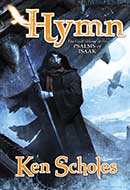 The struggle between the Andro-Francine Order of the Named Lands and the Y’Zirite Empire has reached a terrible turning point. Believing that his son is dead, Rudolfo has pretended to join with the triumphant Y’zirite forces—but his plan is to destroy them all with a poison that is targeted only to the enemy.
The struggle between the Andro-Francine Order of the Named Lands and the Y’Zirite Empire has reached a terrible turning point. Believing that his son is dead, Rudolfo has pretended to join with the triumphant Y’zirite forces—but his plan is to destroy them all with a poison that is targeted only to the enemy.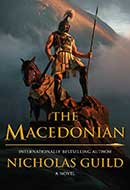 On a cold, snow-swept night in the ancient Greek kingdom of Macedon, a son is born to the king’s principal wife. His mother hates him for being his father’s child. His father hardly notices him. With two elder brothers, obscurity seems his destiny. The boy is sent off to be nursed by the chief steward’s wife.
On a cold, snow-swept night in the ancient Greek kingdom of Macedon, a son is born to the king’s principal wife. His mother hates him for being his father’s child. His father hardly notices him. With two elder brothers, obscurity seems his destiny. The boy is sent off to be nursed by the chief steward’s wife.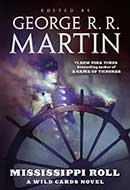 Now on its final voyage, the historical steamboat Natchez is known for her super-powered guest entertainers. But after the suspicious death of a crewmember, retired NY police detective Leo Storgman decides to make this incident his personal case. His findings only lead to a growing number of questions. Is there some truth behind the ghostly sightings of the steamboat’s first captain Wilbur Leathers? What secret does the current captain seem to be hiding? And could the Natchez be ferrying mysterious – and possibly dangerous – cargo onboard?
Now on its final voyage, the historical steamboat Natchez is known for her super-powered guest entertainers. But after the suspicious death of a crewmember, retired NY police detective Leo Storgman decides to make this incident his personal case. His findings only lead to a growing number of questions. Is there some truth behind the ghostly sightings of the steamboat’s first captain Wilbur Leathers? What secret does the current captain seem to be hiding? And could the Natchez be ferrying mysterious – and possibly dangerous – cargo onboard? 1944: Texas Ranger Jim Strong investigates a triple murder inside a Nazi POW camp in Texas.
1944: Texas Ranger Jim Strong investigates a triple murder inside a Nazi POW camp in Texas.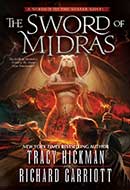 The world died during the Fall.
The world died during the Fall.

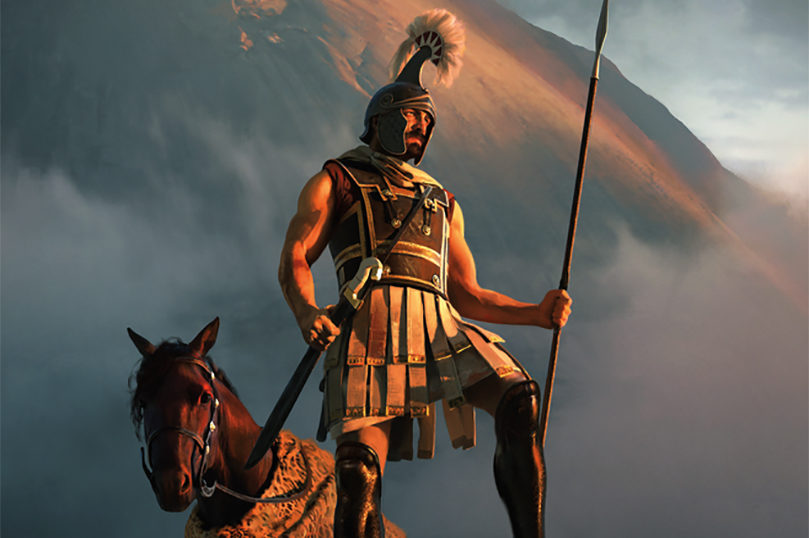







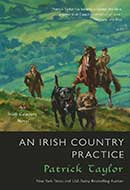



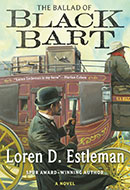
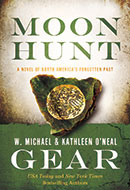 Moon Hunt
Moon Hunt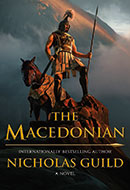 Nicholas Guild’s The Macedonian is a gripping fictional account of the life of Philip of Macedon, the king who sired Alexander the Great and conquered an unprecedented number of ancient Greek city-states.
Nicholas Guild’s The Macedonian is a gripping fictional account of the life of Philip of Macedon, the king who sired Alexander the Great and conquered an unprecedented number of ancient Greek city-states. Texas Ranger Caitlin Strong takes on a gang of neo-Nazis in Strong to the Bone, an action-packed novel of the critically acclaimed Caitlin Strong series by Jon Land.
Texas Ranger Caitlin Strong takes on a gang of neo-Nazis in Strong to the Bone, an action-packed novel of the critically acclaimed Caitlin Strong series by Jon Land.